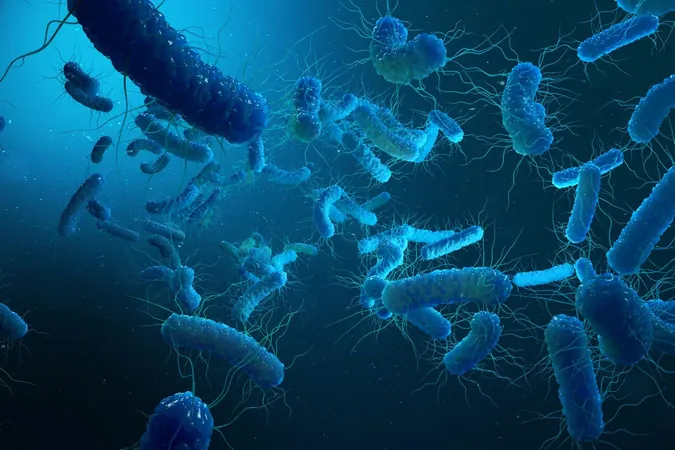
Shocking Study Reveals Link Between Early Menopause and Autoimmune Diseases in Women!
2024-09-26
Understanding Premature Ovarian Insufficiency (POI)
POI is characterized by the ovaries ceasing to produce eggs, resulting in irregular menstrual cycles followed by complete cessation of periods along with symptoms resembling menopause. Affecting approximately 1% of women globally, POI can lead to significant physical and emotional challenges.
The Study: A Closer Look
Published in the esteemed journal Human Reproduction, this extensive research, led by Finnish academics, monitored nearly 20,000 women for over a decade. By analyzing Finland's meticulous health data, researchers identified about 4,000 women under 40 diagnosed with POI between 1988 and 2017. Each POI patient was matched with four women of similar age to assess the prevalence of autoimmune conditions.
The results were alarming: 5.6% of women with POI had been diagnosed with at least one autoimmune disease prior to their POI diagnosis, and this figure surged to 12.7% following the onset of POI. Moreover, women with POI were found to be 2.6 times more likely to have an autoimmune disease compared to the control group, with risks reaching nearly 26 times for polyglandular autoimmune diseases.
Implications for Women’s Health
While it’s important to note that most women with POI will not develop severe autoimmune conditions, the increased awareness is crucial. Dr. Susanna Savukoski, who spearheaded the research, emphasized the importance of informing women about their risks and suggested early family planning for those at risk of POI. However, she also cautioned that certain autoimmune diseases could elevate pregnancy complications.
Dr. Louise Kenny from the University of Liverpool commented on the dire implications of POI, which not only limits the ability of young women to conceive but also raises concerns over complications associated with menopause, such as osteoporosis.
Future Directions: Research and Treatment
The authors of the study are eager to delve deeper into the biological mechanisms linking POI and autoimmune diseases, with hopes of developing preventive treatments. They are particularly interested in investigating the potential benefits of long-term hormone replacement therapy in mitigating these health risks.
Dr. Bassel Wattar from Anglia Ruskin University highlighted the necessity for comprehensive care for women with POI, given the long-term health implications they may face.
Conclusion
In conclusion, this study highlights a critical area in women's health that warrants attention. The intertwining of hormonal health and autoimmune reactions opens up avenues for further research and potential advancements in preventive care. Stay tuned as more findings emerge!




 Brasil (PT)
Brasil (PT)
 Canada (EN)
Canada (EN)
 Chile (ES)
Chile (ES)
 España (ES)
España (ES)
 France (FR)
France (FR)
 Hong Kong (EN)
Hong Kong (EN)
 Italia (IT)
Italia (IT)
 日本 (JA)
日本 (JA)
 Magyarország (HU)
Magyarország (HU)
 Norge (NO)
Norge (NO)
 Polska (PL)
Polska (PL)
 Schweiz (DE)
Schweiz (DE)
 Singapore (EN)
Singapore (EN)
 Sverige (SV)
Sverige (SV)
 Suomi (FI)
Suomi (FI)
 Türkiye (TR)
Türkiye (TR)